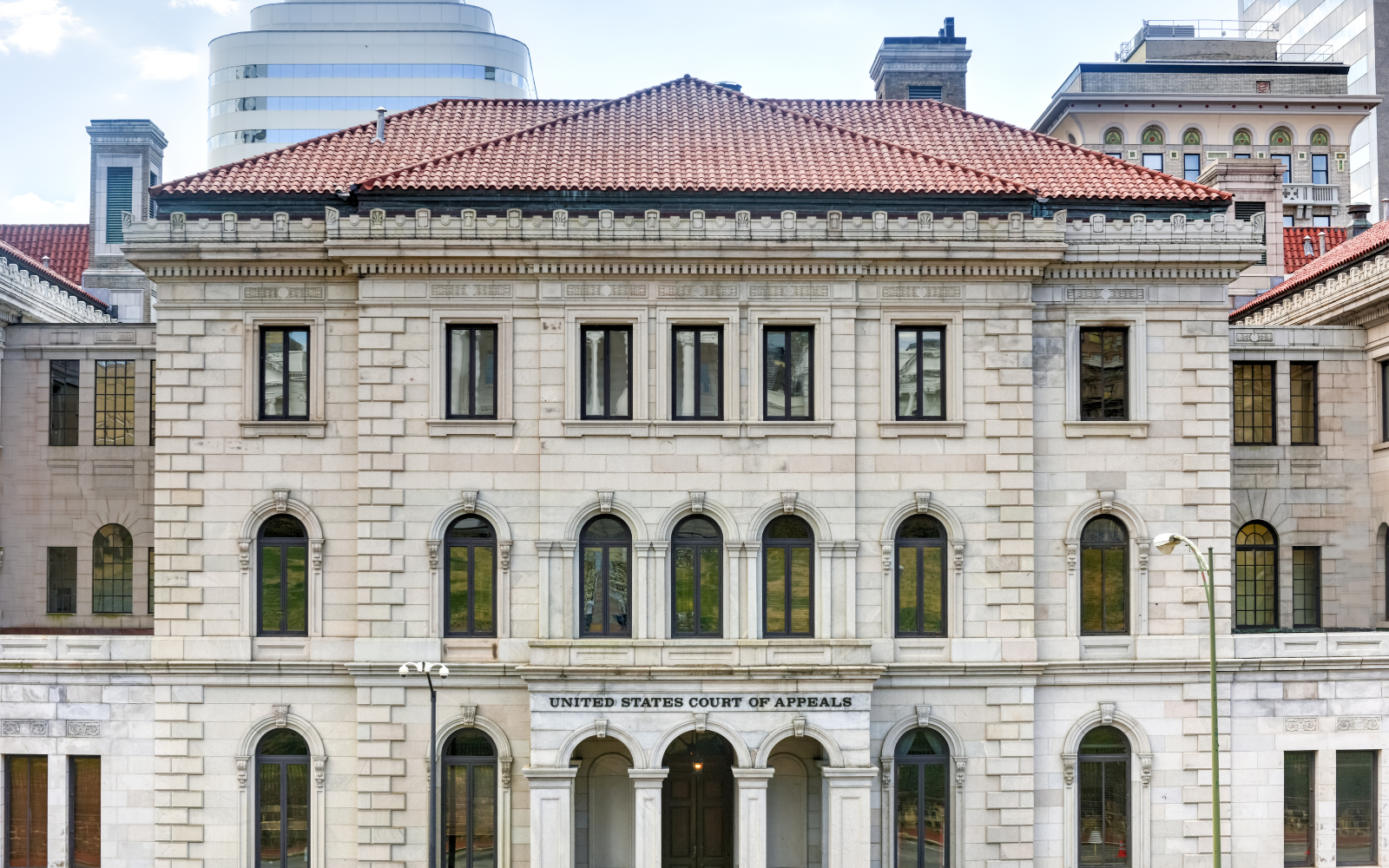RICHMOND, V.A. (Sept. 12, 2025) — North Carolina district attorneys cannot enforce a Jim Crow–era law criminalizing the act of voting by people with felony convictions who had not yet regained their voting rights but mistakenly believed they were eligible to vote, according to a decision today from the United States Court of Appeals for the Fourth Circuit affirming a lower court’s ruling.
Writing for a unanimous three-judge panel, Judge DeAndrea Gist Benjamin held that the statute — first enacted in 1877 and reenacted in 1899 with the explicit purpose of disenfranchising Black North Carolinians — violated the Equal Protection Clause of the Fourteenth Amendment. The court rejected the State’s argument the original law had been indirectly “cleansed” by subsequent changes to the North Carolina Constitution, emphasizing that the law itself had remained “essentially unchanged since the late nineteenth century.”
“The Challenged Statute’s enactment was motivated by a desire to discriminate against Black North Carolinians on account of race and continues to this day to have that effect,” Benjamin wrote in the decision. “It violates equal protection under [the U.S. Constitution].”
Read the decision here.
After the lawsuit was filed, the North Carolina General Assembly passed Senate Bill 747 in 2023, adding an “intent” requirement to the law effective January 1, 2024. The Fourth Circuit rejected the State’s argument, however, that this change “mooted” the lawsuit. Instead, the court agreed with the plaintiffs that the threat of prosecution under the old law remained possible and noted the State’s pursuit of this appeal suggesting an appetite for bringing those cases. Such prosecutions, the court remarked, created “a chilling effect” on civic participation and forced organizations to divert resources from voter registration efforts to reassure people that they would not face criminal charges for innocent mistakes.
“Today’s ruling confirms what we have known all along — that this law was born out of racism and has been wielded to intimidate and disenfranchise Black voters,” said Melvin Montford, Executive Director of the North Carolina A. Phillip Randolph Institute. “The Fourth Circuit’s decision ensures that this remnant of Jim Crow can no longer be used as a weapon against our communities.”
“This is a victory for democracy,” added Pat McCoy, the Executive Director of Action NC. “No one should fear being prosecuted for simply trying to participate in civic life. We can now focus on helping people re-engage in the political process without the shadow of this discriminatory law.”
“This decision is a powerful affirmation that our Constitution does not permit states to cling to racist relics of the past,” said Mitchell Brown, Senior Voting Rights Counsel at Southern Coalition for Social Justice (SCSJ). “For too long, this law was used to intimidate and silence Black voters in North Carolina. The Fourth Circuit’s ruling ensures that people who want to participate in democracy will not be criminalized for honest mistakes. Today, we move one step closer to building a more inclusive and just democracy.”
“Voting is a fundamental pillar of our democracy,” said Jon Youngwood, Global Co-Chair of Simpson Thacher’s Litigation Department. “We were glad to see the Fourth Circuit’s clear affirmation that individuals should not face criminal liability for honest mistakes when exercising that right. This decision ensures that outdated laws with racially discriminatory origins should not undermine civic participation.”
Additional background:
Attorneys from SCSJ and Simpson Thacher & Bartlett LLP, representing the North Carolina A. Philip Randolph Institute and Action NC, challenged the law originally, which was enacted with the explicit intent to disenfranchise Black voters. The law made it a felony for a North Carolinian to vote while on parole, probation, or post-release supervision for a felony conviction, even if they mistakenly believed or were told in error by election workers or other officials that they were eligible to vote. Voters who violated the law could face up to two years in prison.
U.S. District Judge Loretta Biggs’ landmark ruling from last year declared the law unconstitutional under the Fourteenth Amendment. The ruling meant District Attorneys in North Carolina could no longer enforce a racist law allowing for the felony prosecution of individuals with prior felony convictions if they unknowingly or mistakenly cast a ballot without first regaining their eligibility to vote. Earlier this year, the State of North Carolina appealed the federal district court decision.
###
Southern Coalition for Social Justice, founded in 2007, partners with communities of color and economically disadvantaged communities in the South to defend and advance their political, social, and economic rights through the combination of legal advocacy, research, organizing, and communications. Learn more at southerncoalition.org and follow our work on Twitter, Facebook, and Instagram.
Simpson Thacher & Bartlett LLP (www.simpsonthacher.com) is one of the world’s leading international law firms. The Firm was established in 1884 and has approximately 1,500 lawyers. Headquartered in New York with offices in Beijing, Boston, Brussels, Hong Kong, Houston, London, Luxembourg, Los Angeles, Palo Alto, São Paulo, Tokyo and Washington, D.C., the Firm provides coordinated legal advice and transactional capability to clients around the globe.

Felecia Phillips Ollie DD (h.c.) is the inspiring leader and founder of The Equality Network LLC (TEN). With a background in coaching, travel, and a career in news, Felecia brings a unique perspective to promoting diversity and inclusion. Holding a Bachelor’s Degree in English/Communications, she is passionate about creating a more inclusive future. From graduating from Mississippi Valley State University to leading initiatives like the Washington State Department of Ecology’s Equal Employment Opportunity Program, Felecia is dedicated to making a positive impact. Join her journey on our blog as she shares insights and leads the charge for equity through The Equality Network.




